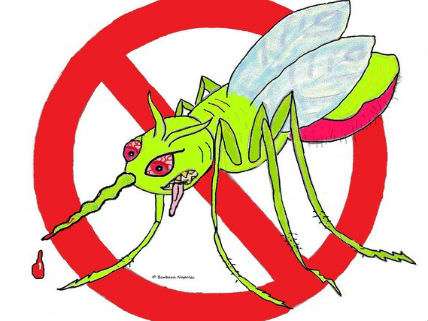Hooray for FrankenMosquitoes in the Florida Keys!
Genetically modified mosquitoes combat disease

Researchers in the Florida Keys are seeking to release millions of male mosquitoes genetically modified to pass along lethal genes to their progeny when they breed with wild females. Naturally, a claque of anti-technology loons are protesting the release, evidently preferring they and their neighbors continue to be bitten by the pests, reports the New York Times. From the Times:
"This is the first time they are releasing genetically modified mosquitoes in the country, and we have not given our consent," said Mila de Mier, a Key West resident and real estate agent who helped spearhead a four-year campaign to block the trial until more research is conducted. "People can't be experimented on without their consent. When the mosquitoes are released, there is no way to recall it."
Actually there is no need to "recall" the flying vexations. Developed by the biotech company Oxitec, the FrankenMosquitoes and their larval progeny must imbibe tetracycline in order to survive. Since there are practically no natural sources of the antibiotic, the disease carrying pests die before they can bite people. In addition, only female mosquitoes suck blood, so the males will leave people alone. As the Times notes:
Oxitec seeks to drastically reduce the population of the dangerous and hard-to-kill Aedes aegypti here by freeing male mosquitoes with a specially made gene designed to kill their offspring after they mate in the wild. This, in turn, could blunt the spread of dengue and chikungunya, viral diseases that have no cure and are spreading quickly around the world.
Field trials in other countries have already had success in reducing the populations of these disease carrying vermin. Let's hope that the FDA and other U.S. regulators hurry up and approve this project. I urge Oxitec to develop soon similarly modified Asian Tiger mosquito males so that I can release them in my backyard.
In any case, other researchers are developing gene drives that could eliminate all members of targetted pest species in the wild. That will surely give technophobes the shakes.


Show Comments (70)